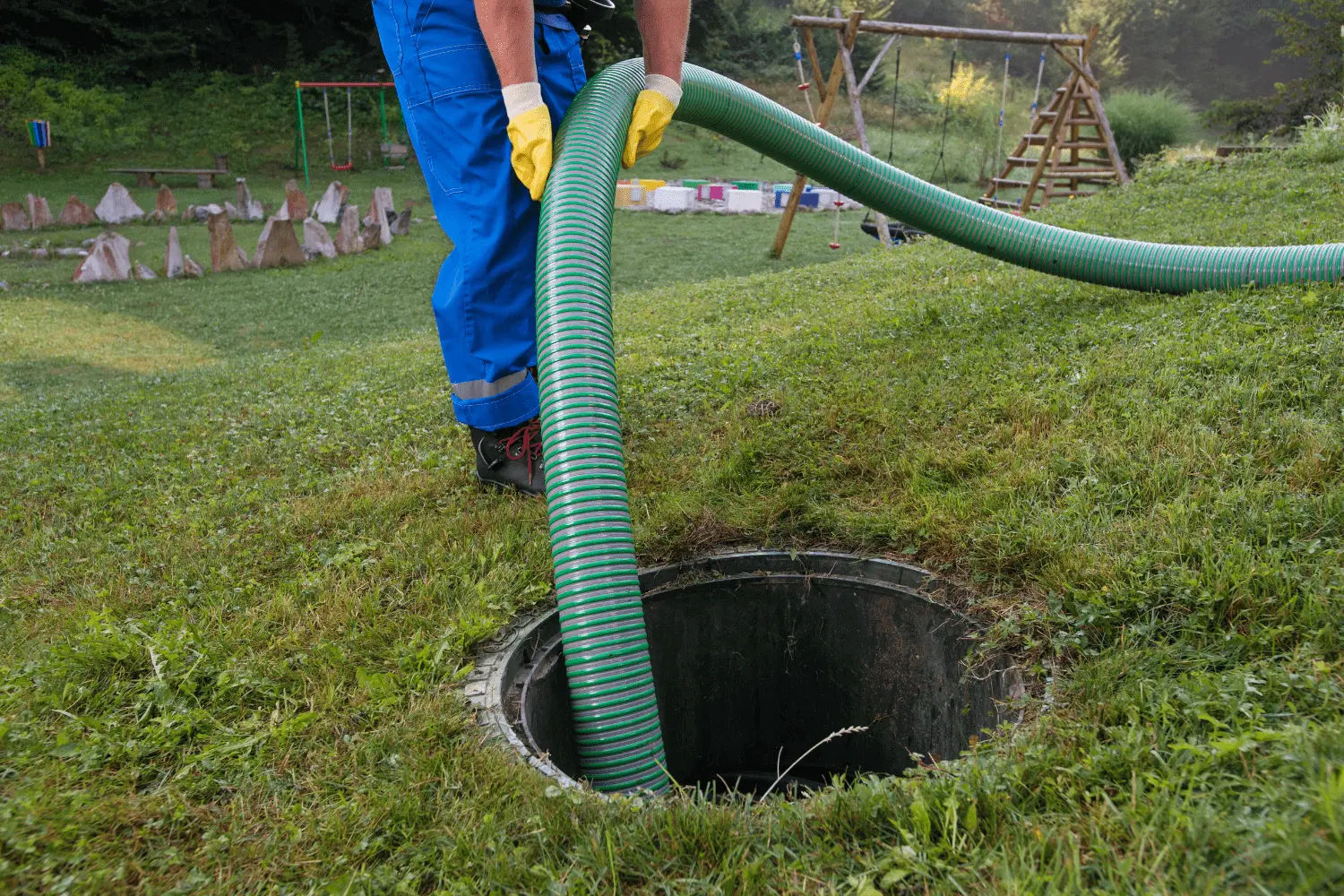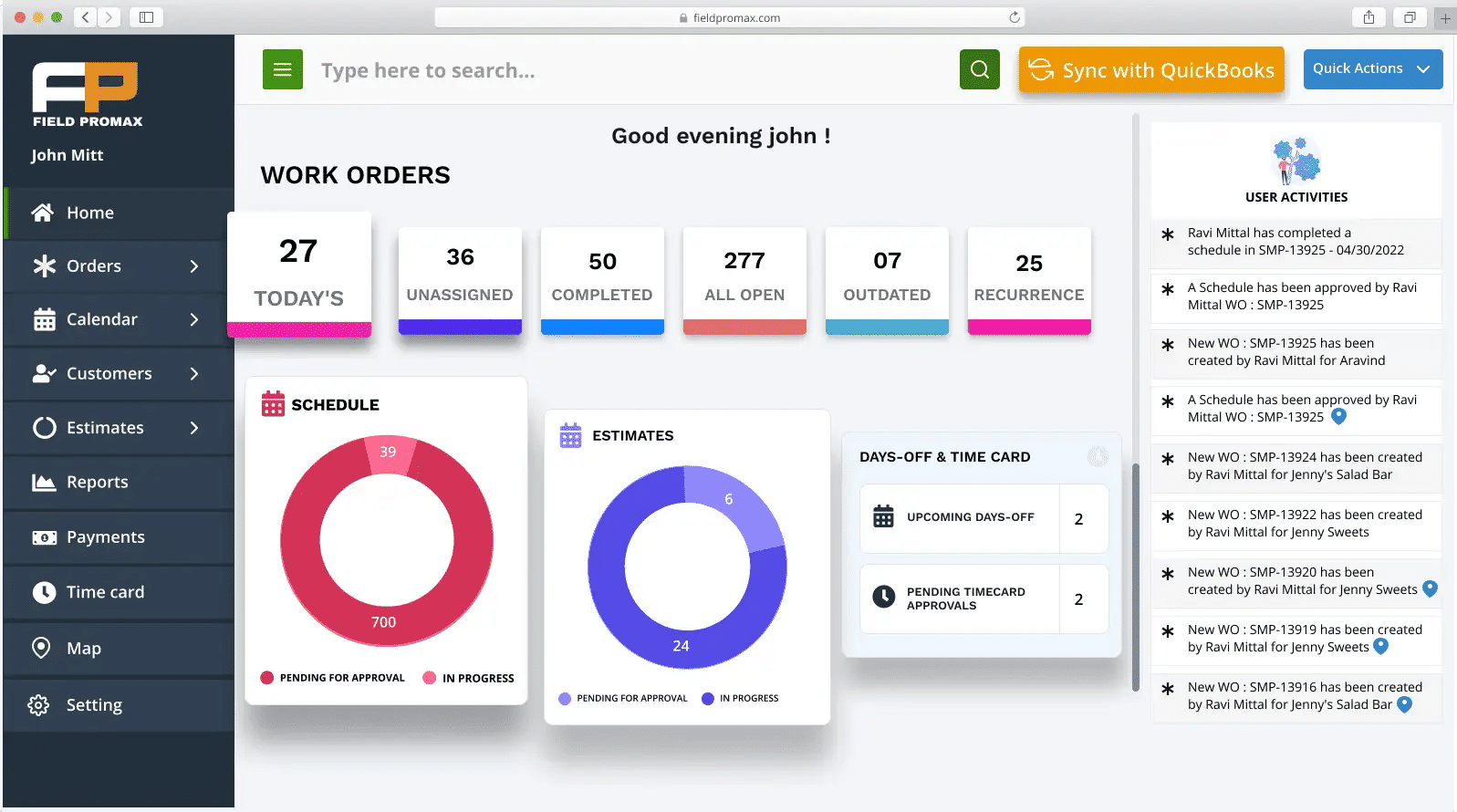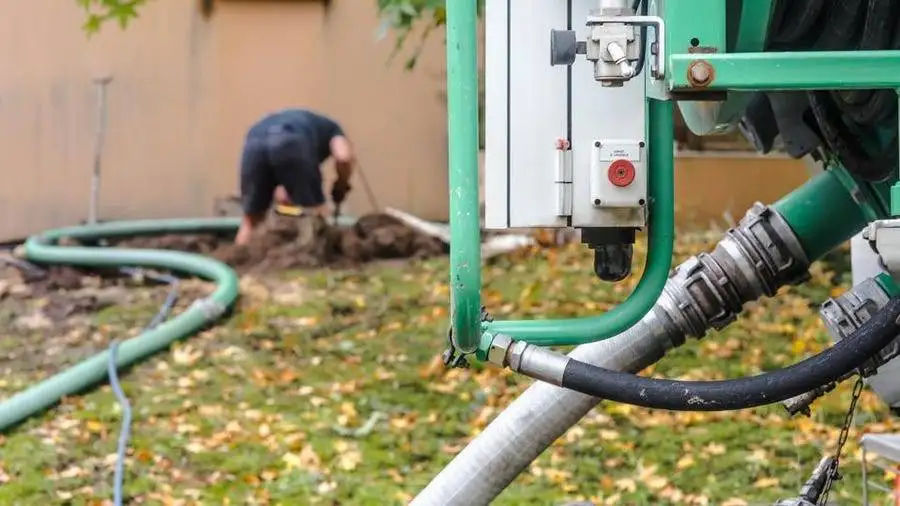How to Start A Septic Tank Cleaning Business in 7 Easy Steps

Do you own a cleaning business or a plumbing company? Are you looking for more ways to expand your business? Or are you looking for a profitable business idea to start your journey as an entrepreneur?
If any of your answers are yes to these questions, then you are in the right place. We have an excellent idea for you– You can start a septic tank cleaning business.
Starting a septic tank cleaning company is nonetheless profitable. It also offers plumbing and cleaning business owners the opportunity to extend their services to include septic tank maintenance and management. Although these services are essential for home maintenance, the job is not exactly the first choice for most service providers for obvious reasons. Therefore, many field service technicians would prefer to avoid them. This results in an abundance of work for the few existing businesses. Additionally, there is a constant demand for septic tank cleaning services because septic systems require regular maintenance on a global scale. making it highly profitable to start a septic tank removal business.
Ready to get started with Field Promax?
Sign Up FreeStarting a business, or any business for that matter, is no joke. It requires dedication, perseverance, hard work, and careful preparation. But when it involves specialized skills, the stakes are even higher. This is particularly true for septic tank services. However, it is not impossible. Managing your own septic business may appear challenging at first, but with the correct steps in place, the process becomes much simpler.
Identifying your initial costs is the first step in launching a successful septic tank cleaning business, followed by tasks such as marketing to expand your customer base. To ensure the long-term success of your business, you must identify your competitors, create a business plan, and grow your team. You’ll also need efficiency-enhancing tools, such as an automated route planner to efficiently schedule technicians and plan daily routes or an estimating tool to prepare deal-winning quotes.
All these might seem overwhelming, but it is not rocket science.
Let’s break it down into seven simple steps for you
1. Chalk Out A Sound Business Plan

Entrepreneurial success requires a well-defined strategy. To this end, you need a sound business plan. It will assist you in mapping out the particulars of your business and charting unknown territories ahead. Don’t worry, we have done the research for you.
i) Estimate Your Startup Cost
Before anything else, you must have a clear vision of your startup costs so you can ensure you have the necessary funds to start your business. This includes the cost of purchasing the equipment, which can range anywhere between $100,000 and $160,000 for various specialized items such as a vacuum truck as well as common tools like hoses and pipes.
You will also need a monthly budget for operating expenses. These expenses include a location to dispose of solids and wastewater legally, liability insurance, and license renewal. Some of these expenses will recur monthly, such as your office’s rent. There are some other costs that may not be as frequent, such as the need for a commercial driver’s license (CDL) to operate septic pump vehicles, but they must be renewed every four years as well.
ii) Identify Your Target Market
The next thing you need to do is identify your target market, i.e., the people who will pay for your services. Without a customer base, there is no point in starting a business.
Customers who reside in areas not serviced by municipal water or wastewater systems are most likely to require septic cleaning services. Clients with their own well and sewage system require regular maintenance. While businesses may occasionally own property with a septic tank, the majority of customers will reside in single-family residences.
iii) Conduct A Market Analysis
After you make sure there is demand for your services, gauge the competitive landscape. Investigate the other local businesses that offer septic services in order to identify your competition. Observe the locations where they operate and the particular services they provide. Additionally, you should evaluate their pricing structure and read consumer reviews. This will provide you with a solid understanding of the local competitive landscape.
Once you’ve accomplished this, you can then identify methods to differentiate your business from the competition in order to attract customers and increase revenue. For instance, if consumers are dissatisfied with your competitors’ pricing and availability, you can offer extended hours and discounted prices to win their business.
iv) Write A Business Plan
Once you have all the necessary foundational data, it is now time to write your business plan.
attaining them. In addition to demonstrating to prospective investors that you have an explicit strategy for the success of your business, a strong business plan further shows that you have a thorough understanding of how to achieve your goals and objectives. To create a comprehensive business plan, you must first select a business name and compose a business summary that includes a description of your company. You will also need to describe how you intend to operate your business, the number of employees you intend to hire, their duties, and who is going to supervise them. It is also essential to detail the specific services you will offer, such as septic tank removal, pumping, and cleansing.
Want a personalized demo?
See how Field Promax can transform your field operations
2. Choose A Name and A Business Structure

Your business name is your company’s identity, so select one that concisely expresses your services, objectives, and mission. Since much of your business, and especially your initial business, will likely come from word-of-mouth referrals, you should choose a name that is short and simple to recall.
While registering a company name, we suggest carrying out research by conducting the following checks:
- State corporate records (where you are based)
- State and federal trademark records
- Social networking sites
- Domain name availability.
Pro tip: It’s very important to secure your domain name before someone else does.
Once you have a name in mind, choose your preferred business structure to form a legal entity. There are numerous types of business entities, each with their own set of pros and cons. Choose your septic tank business’s legal structure judiciously, as it will affect your personal liability, taxes, and business registration requirements.
Here are your options:
Sole Proprietorship— The most common structure for small enterprises is a sole proprietorship. It makes no legal distinction between the business and its owner. The proprietor receives all income and is responsible for any losses, debts, or liabilities incurred by the business. The proprietors are also expected to report their business income on their personal tax returns and pay taxes based on that income.
General Partnership— Similar to a private proprietorship but involving two or more individuals. Once more, proprietors retain profits and are responsible for losses. Partners report their share of business income on their individual tax returns.
Limited Liability Company (LLC)– It combines the features of a corporation, a sole proprietorship, and a partnership. Once again, the proprietors are not personally responsible for debts or losses.
C-Corporation— Under this business structure, the company is a separate legal entity from its owner(s), who are not personally responsible for its debts. Profits are distributed to owners through shareholder dividends rather than directly.
S-Corporation — An S-Corporation is a tax classification, not a legal entity. An S-Corp can be either a corporation or an LLC; the latter must simply elect to be taxed as an S-Corp. In an S-Corporation, the income is passed directly to the shareholders, who report and pay their taxes based on their specific share of company profits on their individual tax returns.
Pro tip: Establishing a legal business entity, such as an LLC or corporation, shields you from personal liability in the event that your septic tank cleaning business is prosecuted.
3. Get Licenses, Permits, and Insurance

You need the appropriate licenses, certifications, and permits for compliance with your local regulations and guidelines. However, the specifics of septic tank cleaning licenses and certifications vary by state. Consult your local regulatory office or other local septic tank cleaning specialists for guidance and to learn what particular standards your business must satisfy. In Texas, for instance, various licenses certify technicians to perform services such as septic system installation, site evaluation, and routine maintenance. On the other hand, while Michigan allows residents to install their own septic tanks, the state mandates that technicians have business and vehicle licenses.
Similar to licenses and permits, your septic tank cleaning business requires insurance to operate legally and safely. Business insurance safeguards the financial health of your company in the event of a covered loss.
There are a variety of insurance policies designed for various business categories with varying risks. General Liability Insurance is a good place to start if you are unsure of the hazards your business may face. This is the most popular coverage that small and medium businesses require, so it is an excellent starting point for your company.
Workers’ Compensation Insurance is another noteworthy insurance that most businesses require. If your business is going to have employees, there is a good possibility that your state may require you to have workers’ compensation insurance.
4. Get You Business Registered for Taxes

The benefits of mechanical construction software for internal communications are obvious. What many people may not realize is that this also improves customer communication. To maintain a record of your history, you can effortlessly import client data and correspondence from your legacy software. This facilitates the tracking of issues and concerns by making it simpler to navigate the history. Customers will be more loyal to your brand if you provide superior customer service.
5. Open A Business Bank Account

Before you can begin earning money, you will need a place to keep it safe, which necessitates opening a business bank account.
Even if you’re operating your business as a sole proprietorship, it’s advantageous to maintain distinct business and personal accounts. This makes filing taxes and tracking your company’s income much simpler. Creating a business bank account is rather straightforward compared to creating a personal one. The majority of leading banks offer business-specific accounts; simply ask your preferred bank about their rates and features
6. Hire A Team and Stock Up Equipment

In 2021, the septic tank cleaning industry expanded by 3.8%, continuing a decade-long trend of expansion. If you want your business to remain competitive, you must employ more technicians to meet customer demand. It is preferable to seek out competent technicians with previous experience performing septic cleaning work so that you can spend less time training. Although experienced technicians will not need training, they will require a higher wage. If this is not feasible, you can employ technicians with less experience and devote time to training. But remember, septic tank cleaning is a highly skilled job. So, make sure to hire employees with some knowledge of the field. You should not start your training by answering basic questions like “What is a septic tank?”
Further, as your team of technicians grows, you will need to employ additional team members, such as HR administrators and dispatchers, to keep operations running smoothly.
It is also essential to equip your team with the proper equipment. This includes a truck equipped with a septic pump, septic locators and probes, tubes, and hoses. You’ll also need brushes and a tank scraper for septic tank cleaning and maintenance.
7. Get A Septic Tank Cleaning Business Software

As you hire more employees and your team grows, you will find it increasingly difficult if you continue to manage your business using paper-based legacy methods. To streamline your operations and make them more efficient, you will need digital technology. There will be tons of backend tasks on a daily basis that can benefit dramatically from automation. Tasks like accounting, invoicing, creating estimates, scheduling and dispatching, routing, monitoring, time-tracking, etc. will become more complex day-by-day if you fail to embrace digital transformation. Not to mention, paper-based methods involve high risks of manual errors, which can be fatal for your business.
To avoid the risks, you need an automation tool. And the best choice in this regard is Septic Tank Cleaning Software. This is an all-in-one software solution to streamline your processes. Not only will it mitigate risks and add more efficiency in your operations, but it will also prove to be your biggest competitive advantage going forward.
Final Thoughts

While digital technology is indispensable to stay ahead of the competition, choosing the right software could be a serious challenge for small and new business owners. The ideal choice for you must give you all the necessary tools and features to automate your business but should not cost you a fortune.
If you have similar concerns, simply go for Field Promax. It is a state-of-the-art field service management software specifically designed for small and medium businesses. Field Promax packs almost every feature and functionality that you may need from your septic tank cleaning software, including scheduling and dispatch, work order management, routing, equipment tracking, estimating, dashboard and calendar views, invoicing, and more.
Despite the chock-full of features, Field Promax comes at a surprisingly affordable price. But more importantly, it offers a wide range of flexible pricing plans to accommodate different team sizes. You can start with the basic plan and upgrade as your team grows.
What’s more, Field Promax has one of the most user-friendly interfaces out there with almost zero learning curve. While you need to invest substantial time and effort in training your field team for the specific skills of septic tank cleaning, your technicians will have to spend little or no time getting the hang of the simple yet effective digital tool. Plus, you have the assurance of best-in-class customer support around the clock.
So, what else are you waiting for? Get started to make your dream of becoming an entrepreneur or expanding your business a reality.
For more information, contact Field Promax
We're here to help you get started